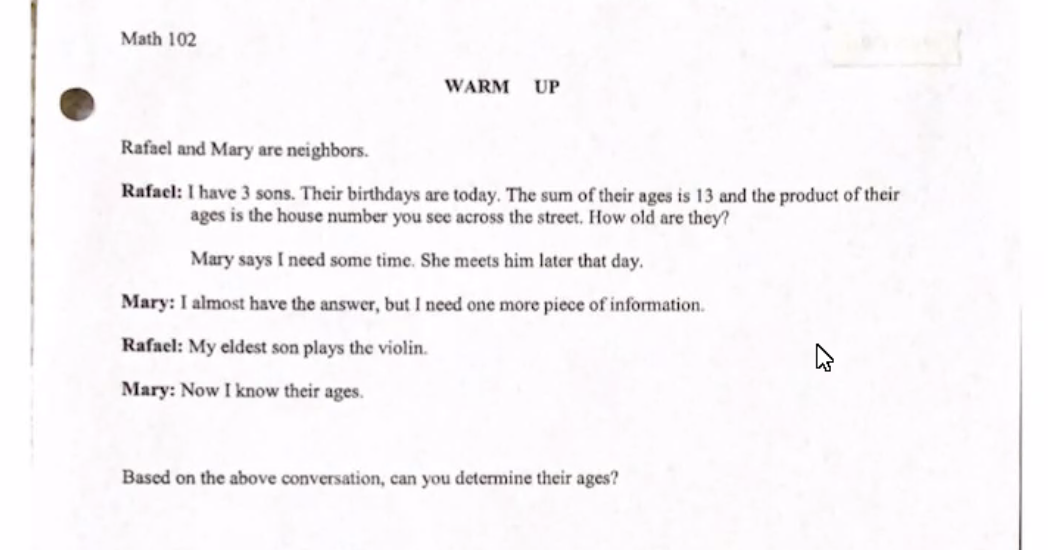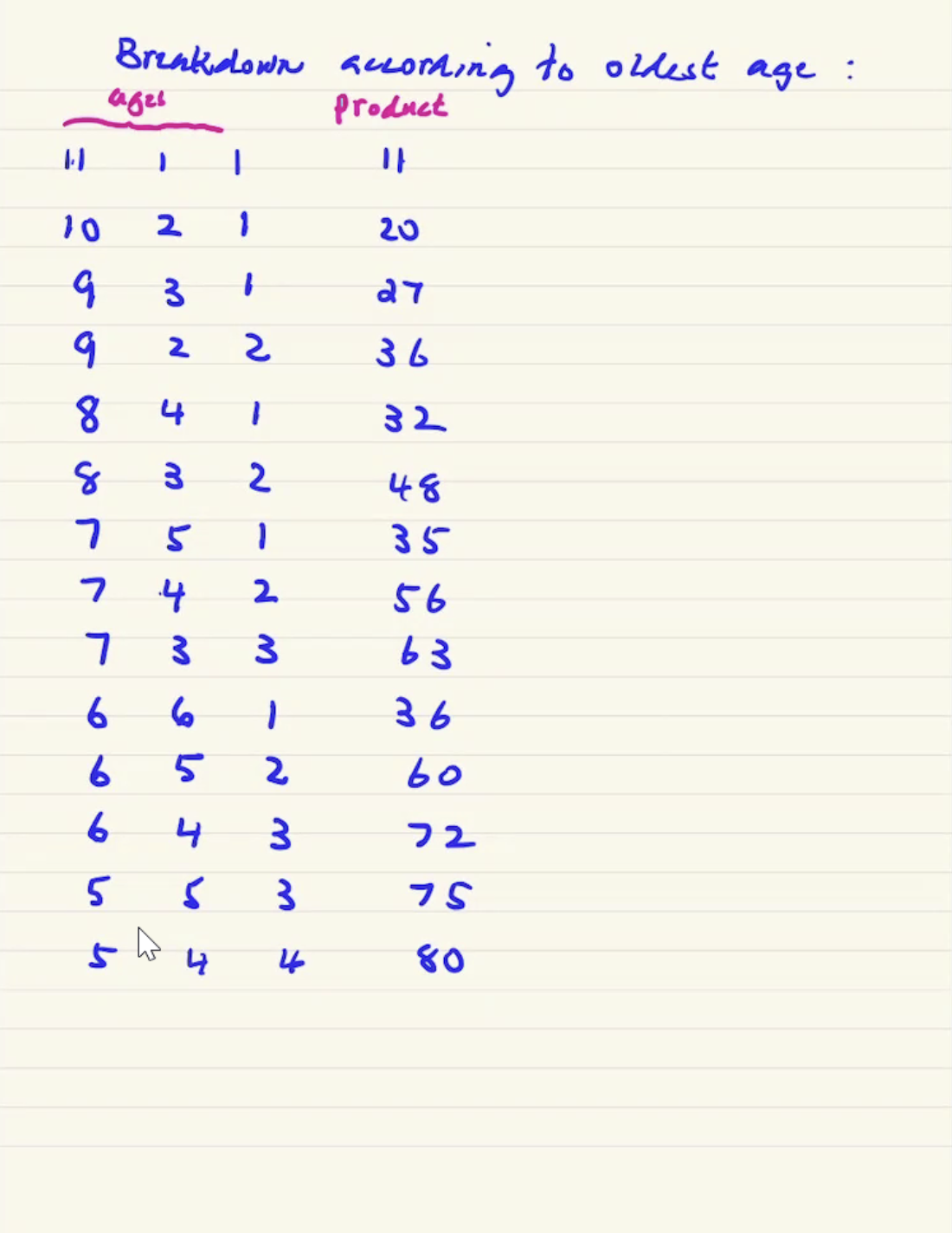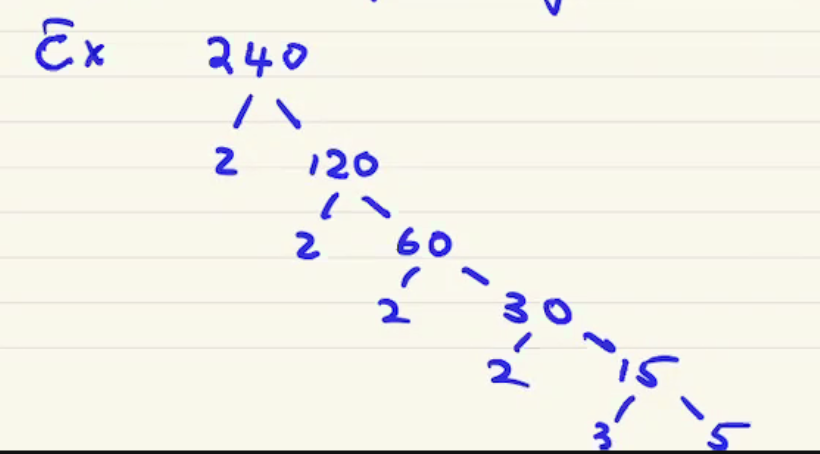Number Theory #
Syllabus #
File: math102-syllabus.pdf
Notes during orientation #
- No complex numbers in this class
- If we use the variable \( n \) , it is assumed it is an integer
- \( p \) assumes a prime number
Warm up #

Breakdown according to oldest age:

- note that 36 appears twice, since Mary needs more time to figure it out it must be this value
- When Rafael talks about his “eldest” son that means that one son is older than the rest, so the answer is 9 2 2
Important sets #
- \( \mathbb{Z} = \{\ldots, -2, -1, 0, 1, 2, 3, \ldots\} \) , the set of all integers.
- \( \mathbb{Z}^+ = \{1, 2, 3, \ldots\} \) , the set of all positive integers.
- \( \mathbb{N} = \{0, 1, 2, 3, \ldots\} \)
- \( \mathbb{Q} = \) all numbers that can be written as \( \frac{a}{b} \) where \( a \) and \( b \) \( \in \mathbb{Z} \) . So, \( \mathbb{Z} \) is contained in \( \mathbb{Q} \) , but \( \mathbb{Q} \) is not contained in \( \mathbb{Z} \) .
- \( \mathbb{R} \) is the set of all real numbers, also denoted by \( (\infty, \infty) \) . \( \mathbb{Q} \) is contained in \( \mathbb{R} \) , but \( \mathbb{R} \) has elements that are not in \( \mathbb{Q} \) .
Primes and composites #
Any integer \( > 1 \) which is only divisible by \( 1 \) and itself is called a prime number.
\[\begin{aligned} 2, 3, 5, 7, 11, 13, 17, \ldots \end{aligned}\]Any integer \( > 1 \) , which is not a prime, is a composite number.
Definition: The Fundamental Theorem of Arithmetic
- All composite numbers are products of primes. We call these products prime factorizations.
- Each composite number has only one prime factorization (sometimes abbreviated as pf), up to order.
Finding the prime factorization of composite numbers #
Divide by the smallest prime which goes in repeatedly. So,
